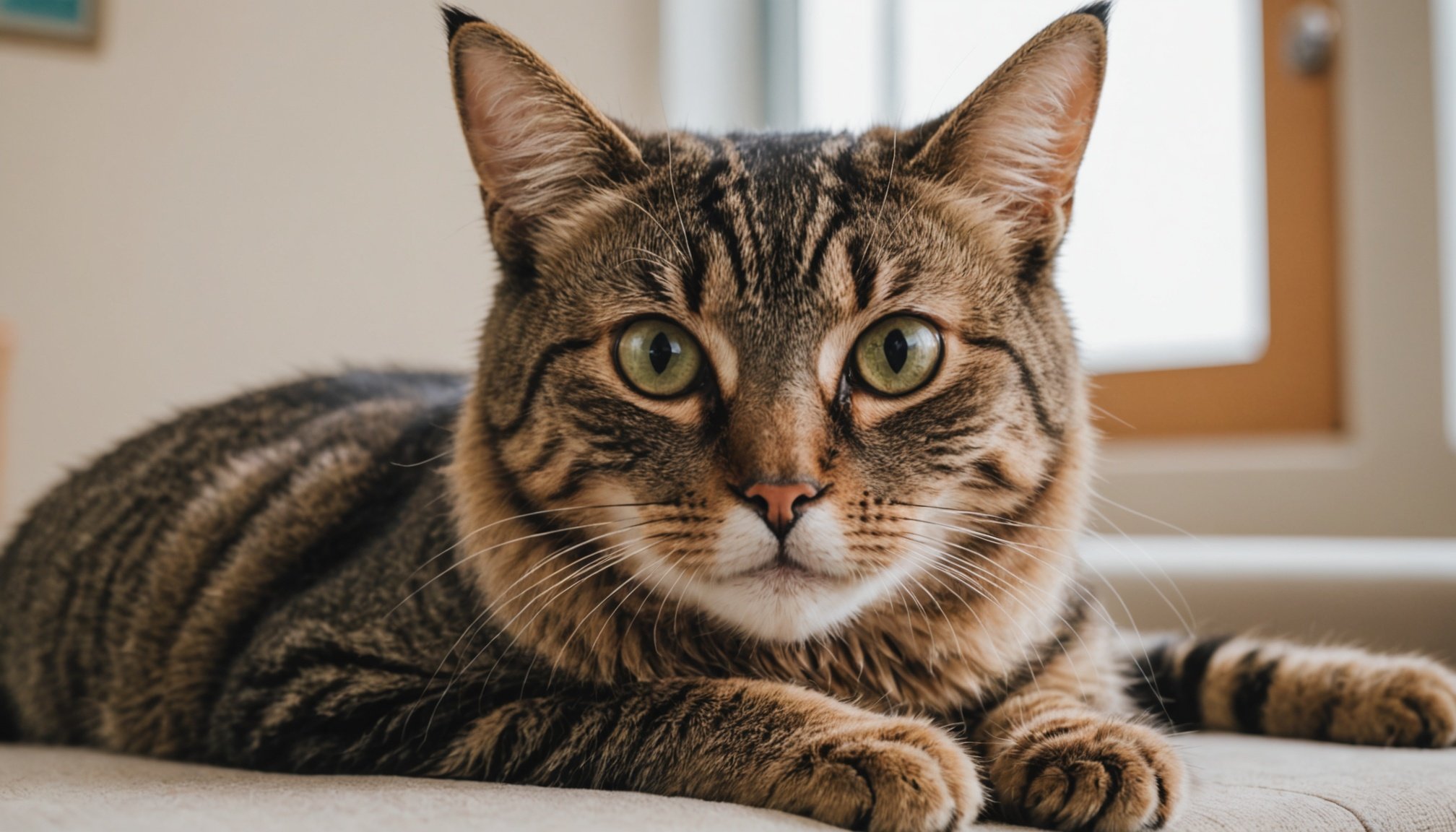Understanding Chemotherapy and Its Effects on Cats
Chemotherapy for cats is a complex treatment regimen often used to tackle cancer. This therapy includes specific chemotherapy protocols, tailored to various cancers, focusing on preserving cat health during treatment. The primary goal is to manage and reduce the cancerous cells while maintaining a good quality of life for the feline patient.
Common Treatment Protocols
The treatment protocols vary based on the type and stage of cancer. Veterinary oncologists may opt for single-agent treatment or a combination therapy to enhance effectiveness. Each protocol is designed to maximize efficacy while minimizing the impact on the cat’s overall health. The therapy may be administered orally, through injections, or via IV infusion, with the frequency and dosage adapted to the individual cat’s needs.
En parallèle : Support Your Feline Friend: Effective Strategies to Alleviate Cat Separation Anxiety
Potential Side Effects
Like any medical treatment, chemotherapy carries potential side effects. Common reactions include gastrointestinal issues, such as vomiting and diarrhea, and lowered immunity leading to infections. These side effects can be physically and emotionally stressful for both the cat and the owner, emphasizing the critical role of veterinary guidance. Regular check-ups ensure side effects are managed promptly, safeguarding the cat’s welfare throughout the treatment.
Veterinary Guidance Importance
Veterinary oversight is crucial to adjust treatment plans appropriately and ensure the cat’s health remains the top priority. Open communication with the veterinarian can relieve stress and provide peace of mind, ensuring the cat receives the best possible care.
A lire en complément : Discover the best cat wellness and accessories for happy felines
Creating a Calming Environment
To foster a calming environment for cats, it’s essential to make adjustments in your home. Start by designating a quiet and comfortable area that caters specifically to your feline’s needs. This space should be free from loud noises and heavy foot traffic to effectively aid in stress reduction.
Utilizing the right calming scents can significantly enhance the tranquility of the area. Products such as pheromone diffusers are designed to mimic natural cat pheromones, providing a familiar and comforting scent. Experiment with different scents to determine what works best for your cat.
Incorporate soothing sounds into your cat’s environment. Gentle classical music or soft nature sounds can work wonders to keep their anxiety at bay. Keeping a radio on at a low volume or using a dedicated pet sound machine can make a significant difference in cat comfort.
Visual elements also play a crucial role in calming environments. Ensure that your home includes areas with safe, engaging stimuli. This might mean offering a window perch so your feline can observe the outside world or using interactive toys that encourage exploration, adding both excitement and comfort to their daily routine.
Stress-Relief Techniques
Incorporating stress relief for cats involves understanding and implementing various comfort techniques designed to enhance their well-being. One effective method is through gentle massages and stretching, focusing on areas where cats often hold tension, such as the neck and shoulders. This not only promotes relaxation but also strengthens the bond between you and your cat.
Interactive Toys and Play
Engaging your cat with interactive toys can be a powerful anxiety-reducing tool. Toys that mimic prey movements cater to your cat’s natural hunting instincts and provide an excellent form of exercise. Regular play sessions help dissipate stress and prevent boredom, which can be a significant source of anxiety in cats.
Routine and Predictability
Establishing a predictable daily routine is crucial in providing stress relief for cats. Cats thrive on predictability, and by incorporating feeding, playtime, and rest comfort techniques consistently, you can create a sense of security for your cat.
Every cat is unique, making it vital to observe and adapt to what your feline friend finds most relaxing. By integrating these relaxation methods, you can ensure a happier, healthier environment for your cat.
Soothing Activities for Cats
Engaging your cat in calming activities can significantly enhance their well-being. Soft music specifically composed for pets can provide an ambiance of serenity, easing anxiety and promoting calm behaviours. Additionally, offering visual stimulation through moving toys or gentle videos can catch their attention and keep them amused.
Spending bonding time is vital to strengthening your relationship with your cat. Activities like slow petting and gentle brushing can offer emotional support and comfort, allowing your cat to feel secure and loved. Regular interaction helps develop trust and encourages a sense of safety.
Implementing low-energy games can also be beneficial. These activities aim to reduce stress while keeping the cat engaged. Simple toys like feather wands or laser pointers can entertain without exhausting them physically. Introducing slow-paced playtimes can help curb boredom and avoid overstimulation.
Cat owners must focus on understanding their pet’s unique preferences and adapting activities accordingly. As every cat is different, exploring various options will help identify what truly calms and pleases your feline friend. Make these soothing practices an integral part of your routine to ensure your pet’s happiness and relaxation.
Dietary Recommendations
Navigating cat nutrition during chemotherapy can be a challenging task. It’s vital to prioritise nutritional support to maintain your cat’s strength and overall well-being. Providing a balanced diet with high-quality proteins and easy-to-digest ingredients can optimise health during treatment. Lean meats like chicken or turkey are excellent sources of protein. They help maintain muscle mass and support recovery.
Integrating stress-reducing diets can significantly impact your cat’s comfort level. Foods enriched with omega-3 fatty acids, such as fish oil, are known players in promoting calmness and reducing inflammation. A daily dose can help alleviate stress-related symptoms and keep your feline friend more relaxed throughout their treatment journey.
Hydration is another crucial aspect of cat health during chemotherapy. Ensure constant access to fresh water to prevent dehydration, a common side effect of the treatment. Wet food options can also provide additional moisture, supporting your cat’s daily fluid intake.
Routine feeding schedules can foster a sense of security and stability. By keeping a consistent meal plan, you help minimise stress, which is essential for your cat’s emotional and physical well-being during chemotherapy.
Recognizing Stress Signals
Identifying stress indicators in cats is vital for ensuring their emotional wellbeing, especially during challenging times like chemotherapy. Cats may exhibit various behavior signals that suggest discomfort or stress. Common stress indicators include excessive grooming, changes in eating habits, and withdrawal from social interaction.
Observing Behaviour Changes
Recognising these changes in cat behavior signals early can be crucial. Being perceptive to your pet’s behavior enables you to address issues promptly, preventing further emotional distress. Cats might show stress through increased aggression or, conversely, more reclusive behavior.
Mitigating Stress Signals
Effectively mitigating stress involves understanding and addressing these subtle cues. Incorporating comforting routines, providing a quiet and safe environment, and engaging in gentle play can be beneficial. Furthermore, ensuring that their physical surroundings remain familiar and enriched will also contribute positively to their emotional wellbeing. If behavior changes persist, consulting with a veterinarian is recommended for tailored advice.
By remaining observant and proactive, you can better support your cat throughout their medical treatment, facilitating a more stable emotional state.
Emotional Support for Owners and Cats
Navigating the emotional journey is crucial for both pet owners and their companions. Ensuring caregiver support is aligned with enhancing the emotional wellbeing of the pet-owner bond.
When managing caregiver stress, maintaining routines can be a comforting anchor. Adhering to daily schedules not only supports the emotional stability of the pet but also minimizes anxiety for owners. The consistency of those routines facilitates a sense of normalcy amid challenging times.
Additionally, fostering connections with your pet is equally paramount. Small acts, like spending quality cuddle time or integrating play sessions, bolster the emotional bond—acting as a reminder of the enduring companionship.
For those grappling with additional challenges, such as chemotherapy, a myriad of resources and support groups are available. These networks offer guidance, empathy, and strategies tailored to ameliorate stress, elevating the emotional wellbeing of caregivers. Seeking communal and professional assistance can transform this emotional journey into a more manageable experience.
Engaging with such resources helps in navigating stressors and reinforcing the strength of the pet-owner relationship, ultimately safeguarding the emotional landscape for both you and your beloved feline friend.
Consulting Your Veterinarian
Pets rely on us for their wellbeing, which is why veterinary advice is invaluable. Veterinarians are not just for emergencies; they offer extensive support services to maintain your pet’s health.
Consider regular health consultations to formulate a wellness routine tailored to your pet’s specific needs. During these consultations, veterinarians evaluate your pet’s overall health, including diet, activity level, and behavior. This allows them to provide personalized recommendations that enhance your pet’s lifestyle.
It’s crucial to have frequent check-ins with your veterinarian. Over time, your pet’s needs might change due to age or other factors. Veterinarians can help adjust care plans based on feedback or observed changes. This proactive approach ensures your pet remains comfortable and healthy throughout its life.
Utilizing veterinary resources not only benefits physical health but also enhances mental and emotional well-being. Access to expert support services can alleviate stress and improve quality of life for both you and your pet. By trusting in veterinary expertise, you ensure you’re making informed decisions, continually fine-tuning care, and enriching your pet’s life.











